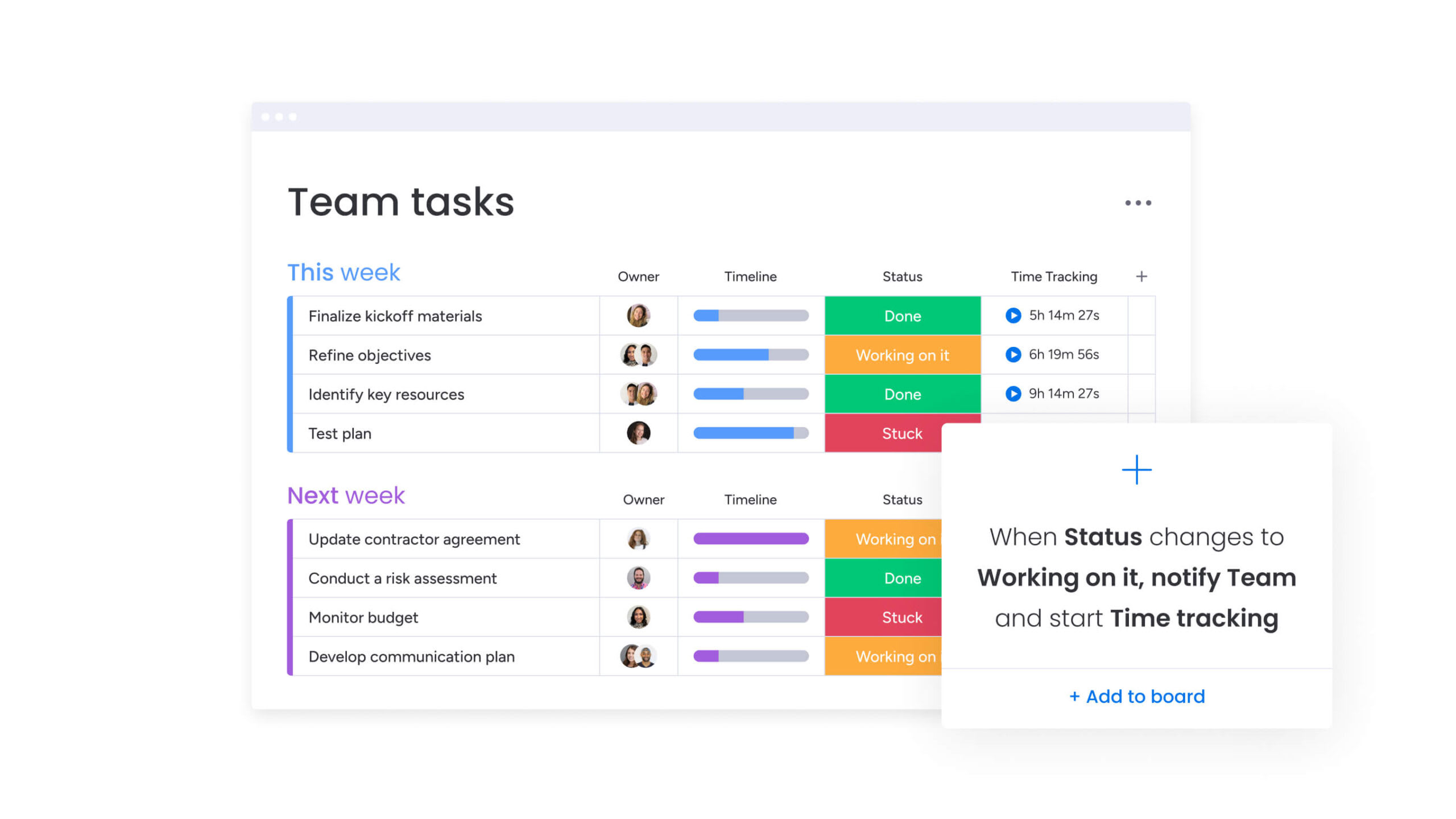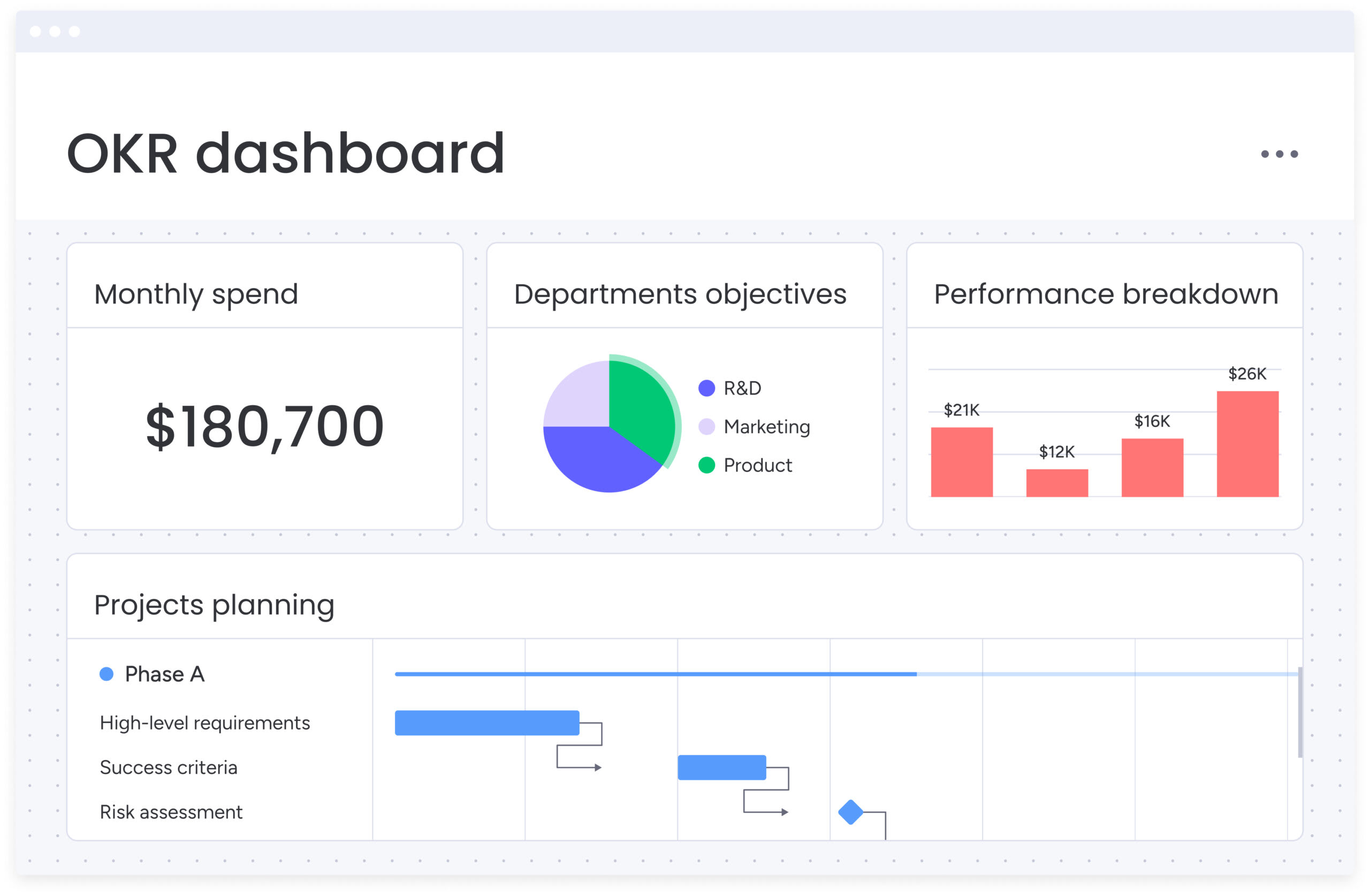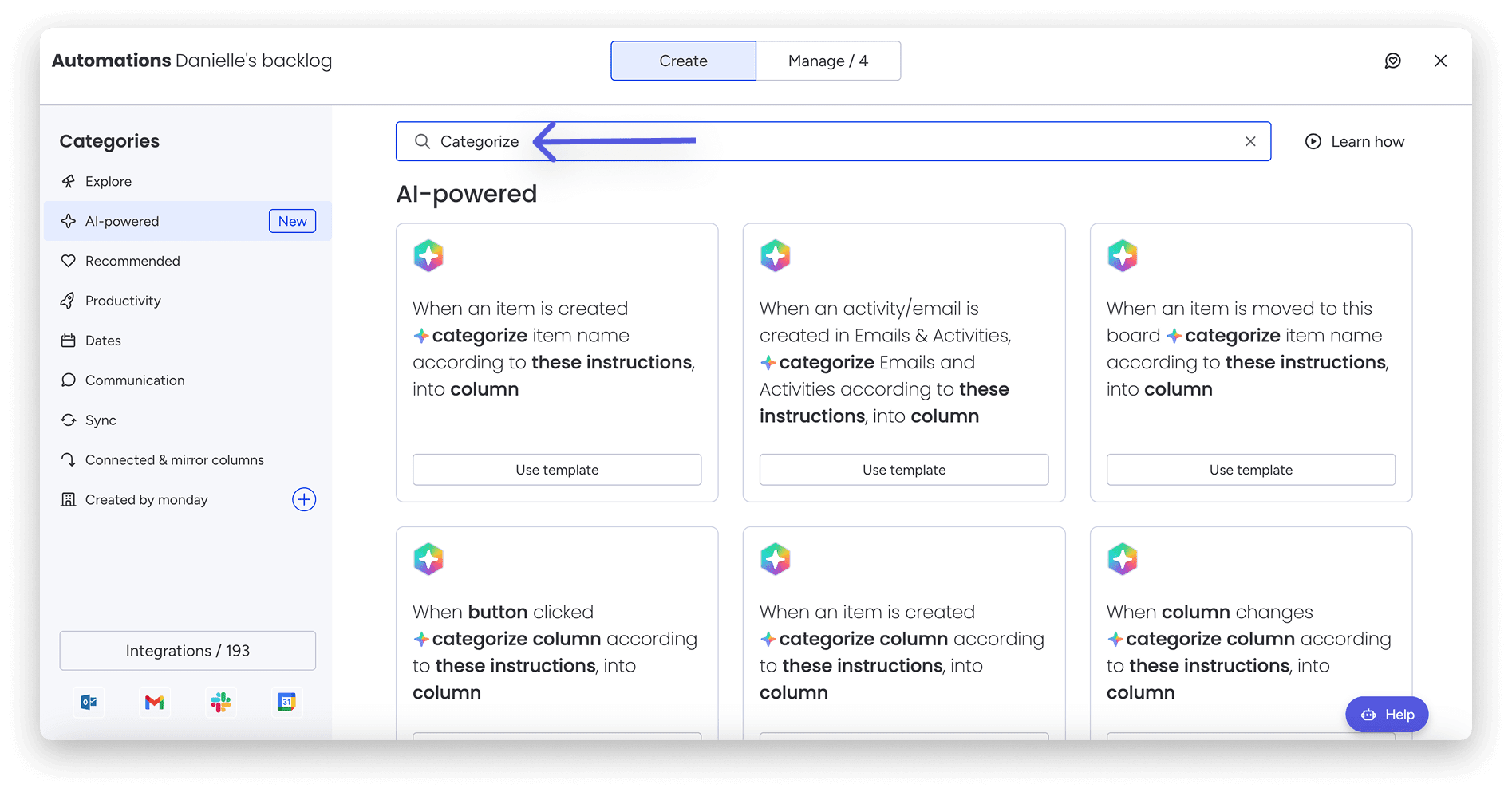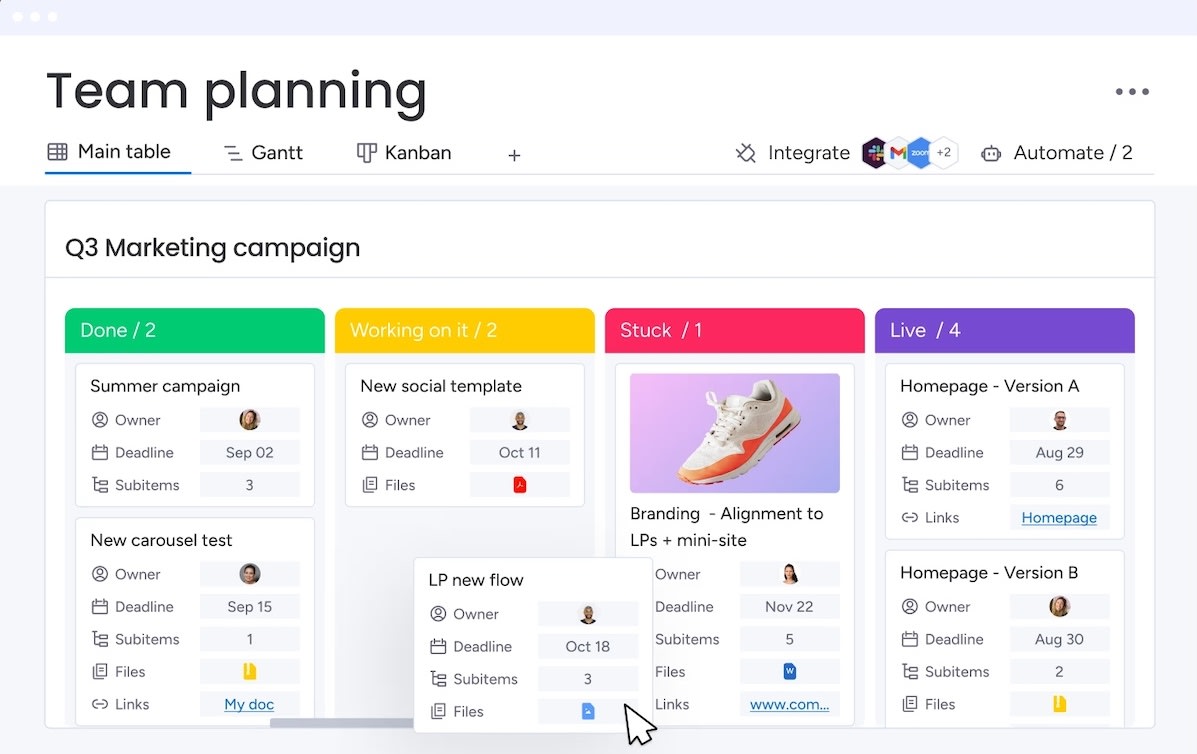Imagine for a second a master chef running a world-class restaurant kitchen. Every ingredient has its place, every timer is set precisely, and every team member knows their role without missing a beat. The difference between disaster and culinary excellence isn’t talent alone, it’s the organizational skills that turn individual capabilities into seamless, coordinated execution.
Most professionals possess the raw ingredients for success but struggle to coordinate them effectively across complex projects and distributed teams. When deadlines collide, priorities shift, and communication breaks down, even the most skilled individuals find themselves scrambling to maintain quality and meet expectations.
This guide explores how organizational skills transform scattered work into streamlined productivity, covering everything from time management fundamentals to advanced coordination strategies that drive measurable business results. With the right approach and platforms like monday work management supporting your efforts, these skills become the foundation for both individual success and organizational excellence.
What are organizational skills?
Organizational skills are the abilities that help you manage time, resources, and workflows effectively to achieve specific goals. These skills encompass both mental capabilities like planning and prioritization, and physical habits such as maintaining organized workspaces and systems.
The organizational skills definition centers on structuring tasks, coordinating resources, and creating systems that reduce chaos while helping individuals and teams work smarter rather than harder.
Understanding organizational skills involves recognizing their interconnected nature. This extends beyond simple tidiness to include strategic thinking, resource coordination, and systematic approaches to achieving objectives across any role or industry.
Why organizational skills matter for productivity
Strong organizational skills directly impact business outcomes by accelerating project completion, reducing errors, and improving team coordination; Harvard Business Review research shows that employees with strong organizational skills complete projects 23% faster and experience 40% less workplace stress than their less organized counterparts. When individuals develop these capabilities, they naturally become more valuable contributors who help teams maintain momentum and achieve strategic objectives.
The connection between individual organization and team performance creates a multiplier effect. Organized professionals often emerge as natural leaders, setting standards and pace for others while creating environments where collaboration thrives and results compound.
Modern workplaces amplify the importance of these skills; LinkedIn data indicates that job skill sets have already shifted by roughly 25% since 2015 and are on pace to double that change by 2027, emphasizing how rapidly professionals must adapt their organizational capabilities. With remote teams, cross-functional projects , and complex workflows becoming standard, organizational abilities serve as the bridge between individual effectiveness and collective success.

Examples of powerful organizational skills
Organizational skills examples demonstrate how these capabilities function as an interconnected system where each skill reinforces others to create comprehensive productivity improvements. Understanding these individual skills helps you identify development areas and build a complete organizational toolkit.
Organization skills examples span both cognitive and behavioral capabilities. Examples of organizational skills include time management, task prioritization, delegation, strategic planning, and effective communication — each working together to drive measurable results.
1. Time management
Time management involves planning and controlling how you allocate hours to maximize effectiveness and achieve priorities. This skill goes beyond simple scheduling to include techniques like time blocking, energy management, and deadline coordination.
Effective time managers batch similar activities, protect focused work periods, and use frameworks like the Pomodoro Technique to maintain concentration. They also build buffer time into schedules to handle unexpected priorities without derailing entire days.
2. Task prioritization
Prioritization means identifying which activities deliver the most value and tackling them in order of importance and urgency. This skill prevents reactive work patterns and ensures high-impact tasks receive appropriate attention and resources.
Successful prioritizers use frameworks like the Eisenhower Matrix to evaluate tasks based on urgency versus importance. They regularly reassess priorities as conditions change and communicate shifts clearly to stakeholders and team members.
3. Delegation and collaboration
Delegation involves strategically assigning work to others while maintaining accountability and quality standards. This organizational skill differs from simply offloading tasks — it requires clear communication, expectation setting, and creating shared ownership of outcomes.
Strong delegators match tasks to team members’ strengths, provide necessary context and resources, and establish check-in points without micromanaging. They understand that effective delegation multiplies their capacity while developing others’ capabilities.
4. Strategic planning and goal setting
Strategic planning breaks large objectives into actionable steps with clear timelines and measurable outcomes. This skill connects daily activities to quarterly and annual goals, ensuring every task supports broader organizational priorities.
Planning and organizing skills work together to create frameworks like SMART goals and OKRs that provide clarity and accountability. Effective planners regularly review progress, adjust strategies based on results, and communicate plans clearly across teams and departments.

5. Communication and documentation
Organizational communication involves sharing information clearly, documenting decisions, and maintaining transparency across projects and teams. This skill ensures critical information flows efficiently and remains accessible when needed.
Organized communicators use consistent formats, provide regular updates, and centralize information sharing. They create documentation that others can easily understand and reference, reducing confusion and repeated explanations.
How to improve organizational skills
Learning how to improve organizational skills requires systematic development through consistent practice and the right systems. The key is starting with self-awareness, then building capabilities systematically rather than trying to change everything at once.
Organizational skill development follows a proven path that anyone can master. How to improve on organizational skills effectively involves focusing on one area at a time while building sustainable habits that compound over time.
Step 1: Conduct a self-assessment
Begin by evaluating your current organizational strengths and identifying specific areas for improvement. Track how you spend time for one week, noting where friction occurs in your workflows and which tasks consistently create stress or delays.
Ask yourself targeted questions about your time management, workspace organization, and project tracking methods. This baseline assessment provides the foundation for targeted skill development and measurable progress.
Step 2: Practice time blocking
Time blocking dedicates specific periods to particular types of work, creating structure and reducing decision fatigue throughout your day. Start with broad categories like focused work, meetings, and administrative tasks, then refine your approach based on results.
Time management and organizational skills work together when you protect blocked time by setting boundaries with colleagues and developing strategies for handling interruptions. Successful time blocking requires consistency and the discipline to honor your own schedule.
Step 3: Create centralized systems
Maintain one primary location for project information, deadlines, and communication rather than scattering details across multiple platforms. Organize both physical and digital workspaces using consistent naming conventions and folder structures.
Centralized systems reduce time spent searching for information and improve team coordination. When everyone knows where to find what they need, collaboration becomes more efficient and less frustrating.
Step 4: Develop delegation habits
Build effective delegation skills by starting with smaller, lower-risk assignments and gradually increasing complexity as your confidence grows. Focus on selecting the right person, providing clear instructions, and setting appropriate checkpoints.
Practice giving context along with tasks, explaining not just what needs to be done but why it matters and how it connects to larger goals. This approach increases buy-in and improves results while developing your leadership capabilities.
How do you currently track your most important priorities? Developing strong organizational skills requires honest assessment of existing habits and systematic improvement over time.
How to boost organizational skills in a modern workplace
Today’s work environments demand organizational skills that blend traditional planning abilities with digital fluency and remote collaboration capabilities, a shift accelerated by the fact that 73% of Millennials have already adopted AI in their workflows . The shift to distributed teams and complex, cross-functional projects has elevated these skills from helpful to essential for career success.
Modern organizational challenges include:
- Managing multiple communication channels
- Coordinating effectively across time zones
- Maintaining visibility and accountability when teams work on different schedules
Success in today’s environment requires adapting traditional organizational principles for digital-first workspaces, and balancing technology with genuine human connection and accountability.
Key organizing skills at work now encompass:
- Digital workspace management: Organizing files, communications, and projects across platforms
- Asynchronous coordination: Ensuring workflows continue smoothly even when team members aren’t online at the same time
- Cross-functional collaboration: Working seamlessly with multiple departments and disciplines
These skills help professionals stay organized while navigating the complexity of contemporary work environments and consistently delivering results.
monday work management addresses these modern challenges by providing unified workspaces where teams can coordinate seamlessly across departments and time zones. The platform’s automation capabilities handle routine organizational tasks, freeing professionals to focus on higher-value strategic work that drives business outcomes.
Try monday work managementKey areas for modern skill development include several critical capabilities. Digital workspace management involves organizing files, communications, and project information across multiple platforms while maintaining easy access and clear version control.
Asynchronous coordination requires creating systems that work when team members aren’t online simultaneously. This includes clear documentation, structured handoffs, and proactive communication about progress and blockers that keep projects moving forward.
Cross-functional collaboration demands organizational skills that span different departments, expertise areas, and working styles. Success requires understanding how different teams operate and creating bridges between their processes and priorities.
Successful remote workers maintain 3 core organizational systems: a centralized digital workspace, consistent communication rhythms, and clear boundaries between work and personal time.
Leveraging work platforms to get organized
With 82% of employees now relying on work or project-management software , the right platform can amplify these human capabilities and make them more sustainable at scale. Modern work management platforms provide the infrastructure that supports and enhances individual organizational abilities across entire organizations.
The most effective platforms combine flexibility with structure, allowing teams to customize workflows while maintaining consistency across projects and departments. They automate routine organizational tasks while preserving human control over strategic decisions and creative problem-solving.

monday work management stands out for its ability to unify organizational efforts across entire organizations rather than just individual teams. The platform’s AI-powered features, including automated task categorization and intelligent resource allocation, help teams maintain organization even as complexity increases and priorities shift.
Several platform capabilities directly support organizational skill development. Visual project tracking helps teams see progress and dependencies clearly, while customizable workflows adapt to different team needs and working styles.

Automation handles repetitive organizational tasks like status updates and deadline reminders, freeing team members to focus on strategic work. Real-time collaboration features ensure everyone stays aligned without constant meetings or status check-ins.
The platform’s Digital Workers can monitor projects continuously, flag potential issues, and suggest next steps — essentially providing an always-on organizational assistant that learns from your team’s patterns and preferences while scaling your capabilities.

How organizational skills translate to career growth
Organizational skills create a foundation for career advancement by demonstrating leadership potential and the ability to handle increased responsibility. Professionals who master these capabilities often find themselves naturally progressing into coordination and management roles where they can multiply their impact. Here’s why and how:
They’re transferable across industries
Organizational skills are valuable regardless of your field or career stage. They give you a clear advantage in job markets where employers prioritize candidates who can handle complexity and consistently deliver results without direct supervision. Examples of how these skills benefit you:
- Enable smooth career transitions and adaptability during industry changes
- Demonstrate your ability to manage time, priorities, and resources in any role
- Make you a more attractive candidate to employers seeking problem-solvers and strategic thinkers
They promote leadership and advancement
Combining leadership with organizational skills allows you to coordinate teams, manage resources, and deliver consistent results. This synergy is often linked to:
- Readiness for leadership roles and promotions
- Value across cross-functional teams and projects
- Potential for advancement along multiple career paths
They demonstrate capability
Strong organizational skills show managers you’re ready for more responsibility, even as projects, teams, or strategic initiatives grow in scale and complexity. You stand out as someone who can work independently and support broader organizational goals without requiring extra oversight.
As you progress, these skills become especially important for roles involving:
- Coordinating several projects at once
- Leading teams or cross-departmental efforts
- Managing strategic initiatives with high visibility
They showcase your skills
To highlight your organizational abilities in interviews or performance reviews:
- Document specific examples of improved project delivery times
- Share stories of enhanced team coordination or streamlined processes
- Describe your role in managing complex initiatives successfully
- Whenever possible, quantify your impact to show how your skills led to measurable business results
What organizational challenges are you currently facing in your role? Identifying specific areas for improvement helps focus development efforts and creates opportunities to demonstrate growing capabilities to supervisors and colleagues.
Take control of your success with monday work management
Organizational skills represent learnable capabilities that create lasting value for both individuals and organizations. By following a systematic development approach and leveraging appropriate platforms, anyone can build these skills and see tangible improvements in productivity and career prospects.
The most successful professionals combine strong personal organizational habits with platforms that support and scale their efforts. This combination creates a multiplier effect where individual skills enhance team performance and drive organizational success at every level.
monday work management provides the infrastructure that amplifies organizational skills across entire organizations. The platform’s customizable workflows, intelligent automation, and unified workspace design mean you can experience first hand how unified organization drives strategic results across your entire organization.
FAQs
What are organizational skills and why do they matter?
Organizational skills are the abilities that help people manage time, resources, and workflows effectively to achieve specific goals, encompassing both mental capabilities like planning and physical habits like maintaining organized systems that drive productivity and career success.
How can someone develop organizational skills quickly and effectively?
such as time blocking or workspace organization, and practicing consistently for 2-3 weeks until it becomes a sustainable habit while tracking progress and adjusting approaches based on results. Developing organizational skills quickly requires focusing on one area at a time
What organizational skills do employers value most in candidates?
Employers most value time management, project coordination, and clear communication across teams because these skills directly impact productivity, collaboration, and business outcomes while demonstrating leadership potential and the ability to handle increased responsibility.
Can organizational skills help improve work-life balance significantly?
Organizational skills significantly improve work-life balance by helping you complete work more efficiently during designated hours, reducing the need to work evenings and weekends while maintaining quality standards and meeting all professional commitments consistently.
How do organizational skills apply to remote work environments?
Remote work requires stronger organizational skills because you must self-manage without direct supervision, coordinate across digital platforms, and maintain productivity in potentially distracting home environments while staying connected with distributed team members.
What is the difference between being organized and having organizational skills?
Being organized refers to keeping your physical and digital spaces tidy, while organizational skills encompass broader capabilities like strategic planning, delegation, and workflow optimization that drive productivity, results, and career advancement across all professional contexts.
 Get started
Get started 

